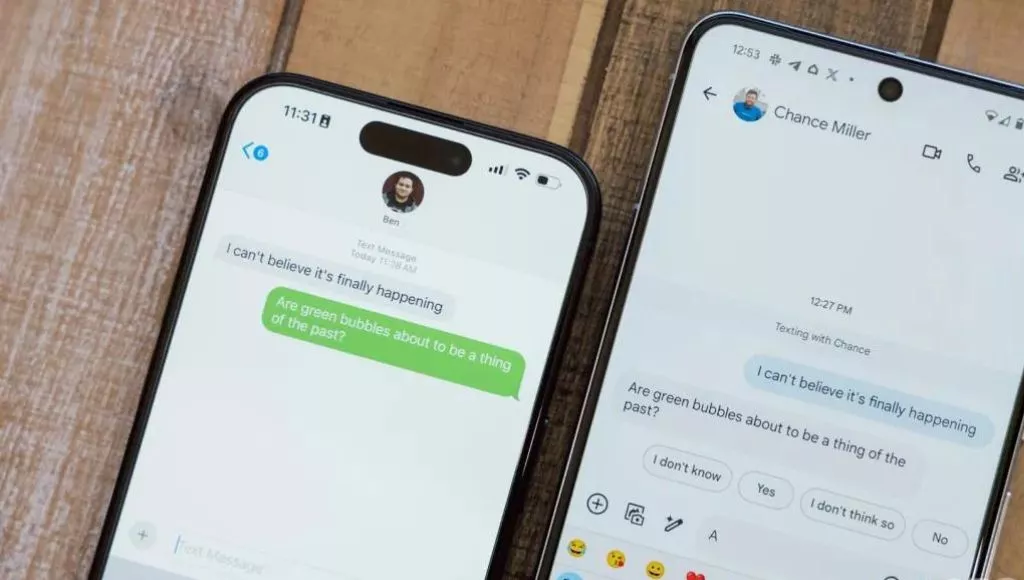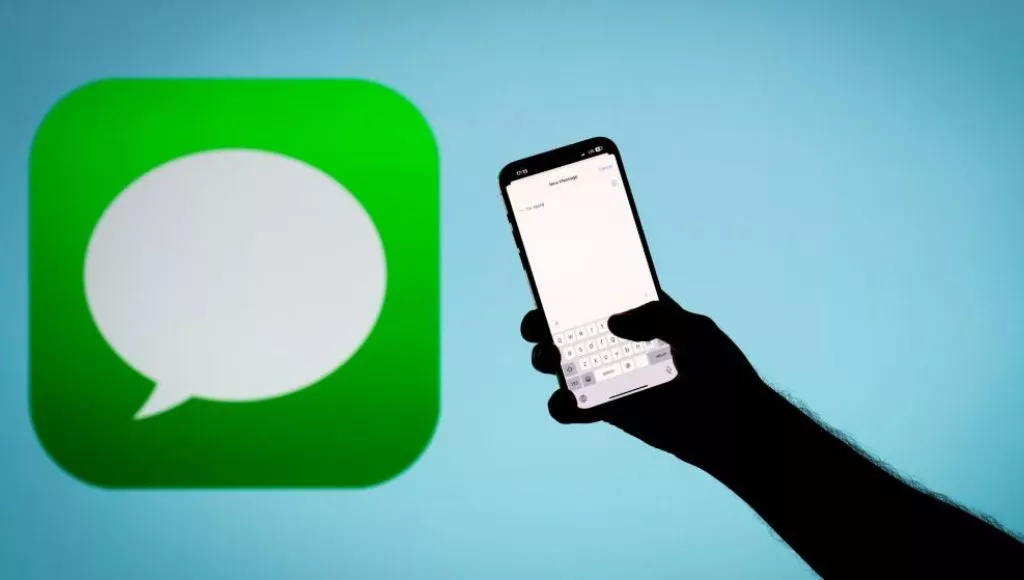In a move that no one saw coming, Apple announced today that the iPhone will add support for Rich Communication Services (RCS) messaging standard in 2024. According to a press statement, the feature will be launched via a software update “later next year”.
RCS is a messaging protocol that is designed to replace SMS and MMS texting. The standard, which has been adopted by Google and Samsung, allows for texting features like live chat, high-quality multimedia support, and video calls, to be shared over smartphones on different platforms.
Apple had been reluctant to bring the messaging standard to the iPhone. When asked what his thoughts were about RCS on the iPhone, CEO Tim Cook said users weren’t much interested in the feature and as a result, the company wasn’t going to “put a lot of energy into it”.
The lack of RCS is why when pictures and video are shared between Android and iPhone, the quality of the media degrades significantly. However, that is all set to change.
Apple Says iPhone Will Support RCS Messaging From Next Year
Apple spokesperson Jacqueline Roy said the iPhone will support RCS Universal Profile sometime next year. Adding that the company believes the GSM Association-approved messaging standard will offer a “better interoperability experience” compared to SMS or MMS for iPhone users and will also work alongside iMessage, Apple’s proprietary instant messaging service.

With RCS, many of the bespoke iMessage features such as read receipts, typing indicators, and high-quality images and videos, are set to come to cross-platform messaging between Android and iOS devices. Additionally, RCS on iPhone will let users share their locations in text threads, while messages can be sent over mobile data or WiFi.
Although it is not clear how exactly the messaging service will work on iPhones, sources have confirmed that Apple has no plans to open up iMessage to other platforms. Instead, RCS will remain separate and messages sent through the protocol are rumored to be displayed in green bubbles, unlike the blue bubbles signifying iMessage.
The company also noted that SMS and MMS will continue to be available as a fallback option whenever necessary.
CHECK OUT:- Microsoft Rebrands Bing Chat To ‘Copilot’ As Competition Shifts From Google To ChatGPT
European Regulators Are Pressuring Apple To Open-Source The App Store and iMessage
Apple’s decision to adopt RCS comes in response to regulatory pressure from the European Commission’s Digital Market Act (DCA), which is a rule that requires major tech companies to make their services interoperable with other platforms. In September, the Commission held a discussion to determine whether iMessage should be considered a “core service platform” under the DCA after main rival Google sent a letter requesting the service to be recognized as one.
Apple retaliated by arguing that its instant messaging service was not popular enough in the EU to qualify as a “gatekeeper service”. The tech giant is reportedly set to appeal to the EU about the inclusion of its App Store and iMessage services in the DCA.
Despite not being interested in incorporating RCS on its devices, Apple rolled out several features to enhance the SMS experience between iPhone and Android users. For example, in iOS16, the company added support for ‘Tapbacks’ in SMS that allowed users to react to text messages. Likewise, with iOS17, Apple brought features like threaded replies and message editing in SMS group chats to the iPhone.
CHECK OUT:- Who’s Next After Solana? Here Are 5 Cryptocurrencies Set For Massive Growth In 2024
Apple To Work With GSMA Members To Improve Security and Encryption Of RCS Protocol
Apple has promised to work alongside members of the Global System for Mobile Communications Association (GSMA) to further improve the RCS protocol’s security and encryption features. The company confirmed to the media that it won’t be using any sort of proprietary end-to-end encryption method on top of RCS but is instead focused on improving the standard’s overall safety and privacy measures.
Apple also reiterated that iMessage is far more secure and privacy-friendly than RCS, arguing that the messaging protocol currently lags in supporting encryption systems that are as strong as its proprietary messaging service.
Cupertino’s announcement goes in line with its strategy to extend support for other open-source standards. The company is working closely with Amazon and Google on the Matter Standard for smart home devices, and with the FIDO Alliance, which includes Microsoft and Mastercard, to expand support for passkeys. Apple also played a key role in developing the Qi2 wireless charging standard, which is built into its MagSafe charging technology.
Google’s senior vice president of platforms and ecosystems, Hiroshi Lockheimer, commended Apple’s decision to join the “ ongoing work with the GSMA” on RCS “to make texting better for all”. In his X post, Lockheimer noted that everyone should have access to secure and modern messaging “without worrying what kind of phone they are texting to”.
